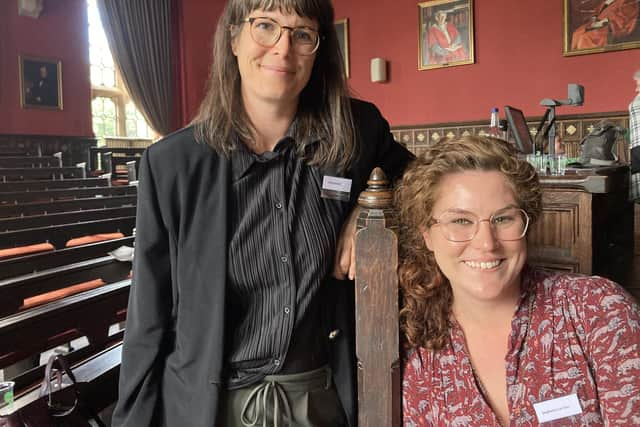The dark side - and the light - of the Outlander fandom
The darkside of the Outlander fandom – as well as the hope the work of historical fiction has brought others – has been explored by scholars.
With more than 50 million of Diana Gabaldon’s books sold around the world and loyalty and passion high among the fans, the the impact of the show has been a major theme discussed at the Outlander Conference at Glasgow University this week.
Advertisement
Hide AdAdvertisement
Hide AdDr Anne Ganzert of the University of Konstanz in German, has researched Outlander’s “dark fandom” and the online bullying and harassment of fans and stars, including lead actor Sam Heughan. Meanwhile, Dr Stephanie Garrison, of the University of Aberdeen, has researched the ‘pilgrimages’ made by fans to Scotland from around the world and the personal benefits the Outlander series has had on their lives, whether it be overcoming PTSD, grief or marriage and sex problems.


Dr Ganzert said the Outlander fandom differed from others given it was made up of mostly older women.
She said: "That is what drew me in the first instance and then I found these instances of very, very dark threatening behaviours that were regulated within the fandom. We are talking about online threats against other fans and threats against actor’s partners.”
Dr Ganzert said a section of fans had become upset that the two main characters – Jamie and Claire Fraser, played by Sam Heughan and Caitriona Balfe - had not become romantically involved in real life and were dating other people.
"Those other people were then receiving threats,” she added.
“The idea that actors have great chemistry on screen and should be together off screen isn’t that far fetched. When it turns out that they are just really great friends, people are disappointed but some take it to the next step and think ‘on no, that other person is a disturbance to the truth, the real love between them’. That is the discourse that is going on.
"In other fandoms there have always been cases of stalking and threatening actors, not necessarily their entourages, and it is usually singular fans. In this case, it was unusually a groups and it was a more organised attempt.”
In 2020, Sam Heughan spoke out about six years of “constant bullying and harassment” towards both himself and those close to him.
Advertisement
Hide AdAdvertisement
Hide AdDr Garrison, of the University of Aberdeen, used part of her research to study the impact of Outlander on those who had travelled to a fans gathering in Aviemore in 2017.
She said: “I was looking at individual fans and their engagement in Outlander and how it touched them beyond fandom.
"Some women had spoken about overcoming Post Traumatic Stress Disorder. They had a fear of leaving their home and Outlander acted as this platform to say I ‘want to try and overcome this and grow and be able to take this journey’.
"Others said Outlander got them to be a lot more open with people or help grieving processes. There was also talk about overcoming marital challenges and using Outlander as a way of communicating with partners. It was also used as a starting point to talk about love and sex.”
Comments
Want to join the conversation? Please or to comment on this article.